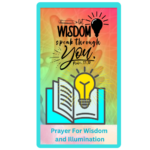“Being entirely honest with oneself is a good exercise.” – Sigmund Freud
In a world obsessed with filters, facades, and feel-good distractions, Freud’s words strike like a lightning bolt of truth. They’re simple, yes — but profound.
Most people go through life wearing invisible masks. We present a version of ourselves to the world, tailored to be accepted, admired, or simply understood. Over time, we even begin to believe in this edited version of ourselves. But deep within, there’s often a quiet voice asking: Is this really me?
Self-honesty isn’t trendy. It’s not always pretty. But it’s powerful. And for those brave enough to practice it, it becomes the foundation of personal growth, mental clarity, and emotional freedom.
Let’s explore why radical self-honesty might just be the most powerful exercise you’ll ever do — and how to start doing it today.
The Courage to Look Within
Being honest with others is hard enough. But being honest with yourself? That’s a whole different beast.
It takes courage to admit that maybe you're not living in alignment with your values. Or that you're staying in a job or relationship because it’s comfortable — not because it inspires you. Or that you’re afraid of failing, so you don’t even try.
Self-honesty asks uncomfortable questions. It shines a light in places we’d rather keep dark. But here’s the thing: growth doesn’t happen in denial. Growth starts the moment you stop lying to yourself.
What Happens When You Practice Self-Honesty?
- You Break Free from Illusions
When you strip away the excuses and justifications, you begin to see reality as it is — not as you wish it to be. This clarity is liberating. You stop pretending. You stop settling. You stop wasting time on what doesn’t serve you.
- You Reclaim Personal Power
Excuses drain power. Blame shifts responsibility. But when you look at your life and say, “This is on me,” you take back control. You realize that while you can’t always change your circumstances, you can always change your response.
- You Heal at the Root
True healing begins with truth. Whether it’s trauma, guilt, shame, or limiting beliefs — you can’t heal what you won’t face. Self-honesty brings those wounds to light so they can be addressed and transformed.
- You Build Deeper Self-Trust
Ironically, when you admit your flaws, failures, and fears — you start trusting yourself more. Why? Because you’re no longer gaslighting yourself. You’re no longer pretending everything’s fine when it’s not. That authenticity becomes your inner anchor.
Why Most People Avoid It
Let’s be honest: self-honesty hurts at first.
It hurts to admit you’ve wasted years chasing approval.
It hurts to realize your fears have kept you small.
It hurts to acknowledge that you’ve betrayed your own potential.
But you know what hurts even more? Staying stuck in a life that’s not really yours.
The short-term discomfort of honesty is nothing compared to the long-term pain of denial. One burns like a match. The other smolders like a slow fire, consuming your joy, passion, and peace over time.
How to Begin Your Practice of Self-Honesty
You don’t need a therapist’s couch to get started. Just a willingness to get real with yourself — brutally, lovingly real.
Here are five steps to help you start this life-changing practice:
- Ask the Hard Questions
Carve out quiet time and ask:
- What am I pretending not to know?
- What excuses do I keep telling myself?
- Where in my life am I out of alignment?
Write your answers down. Don’t filter. Don’t judge. Just let the truth come out.
- Catch Yourself in the Act
Start noticing when you sugarcoat your thoughts or shrink your desires. Are you saying “I’m fine” when you’re really overwhelmed? Are you laughing things off to avoid confrontation?
Self-awareness is the first step to self-honesty.
- Replace Judgment with Curiosity
This isn’t about beating yourself up. Self-honesty isn’t self-criticism — it’s self-compassion. When you discover a painful truth, respond with curiosity, not shame.
Ask: “Why do I feel this way?” or “What is this emotion trying to tell me?”
- Tell Yourself the Truth, Gently
Sometimes the truth stings. But you don’t have to be cruel about it. Speak to yourself like a wise friend would.
Instead of saying, “I’m a failure,” say: “I haven’t been consistent. But I can change that.”
Instead of, “I’m weak,” say: “I’ve been avoiding discomfort. It’s time to face it.”
- Make One Bold Move
Clarity is nothing without action. Once you’ve been honest about a situation — do something about it.
Leave the job. End the toxic friendship. Start the project. Set the boundary. Take the first step toward the life your soul actually wants — not the one your ego is protecting.
When You Get Honest, You Get Free
The truth is this: most people don’t live the life they truly want because they’re not willing to admit the truth about the life they currently have.
But you? You have the power to change that.
Yes, self-honesty is a practice. Yes, it will feel uncomfortable at first. But on the other side of that discomfort is a deeper version of you. A version that’s real, raw, and fully alive.
You don’t need to fix everything overnight. You just need to be willing to see things clearly.
Because once you’re honest with yourself…
You stop chasing what doesn’t matter.
You stop betraying your own intuition.
You stop living a life designed to impress — and start living a life designed to fulfill.
And that, as Freud said, is the good exercise — the kind that builds inner strength, emotional intelligence, and a life that actually feels like yours.






